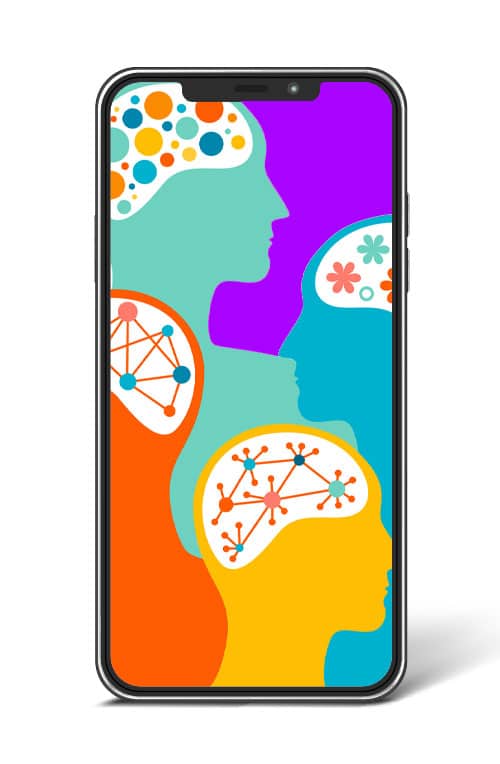— Samach-Vav Part 20 —
One hundred years ago this week the Rebbe Rashab, born 146 years ago this Shabbat (Cheshvan 20), delivered the 48th discourse of his 61-part magnum opus, Samach-Vav. The Rebbe and his family then traveled and remained in Wurzberg, Bavaria (Germany), and the series of discourses would only resume six months later, in the spring of 1907.
Because of the upheaval that took place in the summer of 1906, the Rebbe Rashab was unable to continue writing the discourses he delivered during those weeks – namely the eleven discourses from number 38 till the current one, and he actually wrote them in Wurzberg.
This weeks’ discourse, which ties together the themes discussed all the way back to discourse number 12 – the power of self-generated effort – describes in eloquent detail the many ways we are nurtured in our road to success.
On the surface level the Torah tells the story of the first 26 generations from creation – events that transpired from the time of Adam and Eve, through Abraham, Isaac, Jacob, the twelve tribes, the Egyptian exile and exodus, Moses’ leadership, guiding the Jewish people’s forty year journey through the wilderness, concluding with their arriving at the eastern bank of the River Jordan.
But within the literal Biblical events lies a much deeper story: The Torah is a cosmic blueprint. Every Biblical character and episode is actually another piece of a complex spiritual roadmap, which describes the basic building blocks of existence, including our personal lives. All Torah personalities are archetypes of different traits that we all carry within ourselves.
For this reason we say in our evening prayer that Torah and mitzvoth are “our lives and the length of our days:” The Torah narrative is the story of our lives.
Simply put: Deciphering the Torah will reveal what makes you tick. No small feat.
The mystics explain that the spiritual DNA of existence breaks down to four “worlds,” each comprised of ten “sefirot,” which define the spectrum of all experience, cosmic and personal, global and individual, macrocosmic and microcosmic.
This week we read the story of Abraham which is essentially the story of love (the spiritual “sefirah” called chesed). The Bahir, one of the early Kabbalistic works, states that the emotional faculty of “chesed declares before G-d: Almighty, from the day that Abraham is on Earth I do not have to do my work because Abraham serves in my stead.”
Abraham, called G-d’s “beloved,” is love incarnate on earth. He embodies the faculty of love within existence and within each of our souls.
Abraham embodies the faculty of love within existence and within each of our souls.
Hence, Abraham turns away from G-d, in the opening of this week’s portion, to greet wandering nomads. Abraham and Sarah’s home (tent) is open to all, even strangers. Their life is dedicated to kindness – touching and illuminating all those that they come in contact with. Even when it comes to the wicked city of Sodom, Abraham does not rest and does all he can to try to prevent its destruction.
[Later, Isaac will personify the principle of gevurah – discipline, and Jacob – tiferet, compassion, and so each Biblical personality and event uncovers another aspect of the “map”.]
How fitting, then, that this week’s Samach-Vav discourse addresses the different ways we extend support to those we love.
Every effort, every achievement, regardless of how innovative, does not stand alone. Like a “midget that stands on the shoulders of a giant,” our successes are an accumulative result of our own efforts plus the strengths given to us by those that came before us – our parents, educators, friends and colleagues, all that supported and helped us get to this point.
There are many ways that we are lent a helping hand in our lives and many ways that we must extend our support to others. Samach-Vav enumerates a few of them.
We often don’t notice the “little” events that shape our entire lives, until it’s too late. Especially our earliest childhood experiences that take place in our most formative years.
Observe the way a child begins his/her development from the crib to crawling to walking on his own two feet. Though this may seem merely physiological – incomparable, say, to the emotional nurturing parents provide their children – in fact the way parents guide their children even in physical growth, like learning to walk, reflects much deeper emotional forces at work.
Which is why Chassidic teachings, always deeply rooted in the forces that shape our psyches, focuses on the analogy of a child being carried by his parent, a young child being supported to walk on his own.
Samach-Vav describes two stages in the process of a child’s development. A newborn cannot walk on its own. Even later, we may be able to get up but then we fall and cannot remain standing on our own. A healthy parent lifts up the child, carries and protects the child, like an eagle carrying its young on its wings. At this stage we clearly are dependent on our parents to lift us, to love us.
Then we reach an age we can stand on our feet, but we still need the support of a parent to prod us along. Earlier, a parent may be standing behind the child and actually grasping the child as he guides him along. The child’s feet do the actual walking, but his power to move forward is not his own, but his parent’s. To the child it appears as if he’s walking on his own, when indeed he is only able to do so because of the support behind him.
Then we reach the age when we can “walk on our own two feet.” The rest is history.
The ultimate purpose of life, as the Rebbe Rashab reminds us, is to create – to produce something new through our self-generated hard work. Not to suffice with the gifts of others or be satisfied with the wealth we inherit (see Raging Waters). Not to depend on support and crutches. “If I am not for myself who will be for me?”
But on the other hand, we must never forget how we got here. We are not self-made creatures. We can only innovate today because we were nurtured yesterday. “If I am only for myself what am I?”
We can only innovate today because we were nurtured yesterday.
[In the context of Samach-Vav: The soul of Atzilus (and the Kav in general), the son, nurtures the soul of biy”a, the servant, and allows it to feel comfortable and intimate with the Divine. But the ultimate innovation is acheived through the exertion and hard work of the servant to transform the universe into a Divine home].
What is so beautiful about a tree is that its strength is defined by its roots. The tree reaches up to heaven, branches out into the expanse, bears leaves, flowers or fruits, casts a beautiful shade, absorbs toxic carbon dioxide from the atmosphere and emits nourishing oxygen in return, its powerful trunk – all set in motion, made possible and determined by its early roots. A mere sapling, properly nurtured, bore us this magnificent tree.
Deep roots bear beautiful fruits. Roots that supply support and nutrients allow the tree to soar into the heights.
Every one of us began as children. First we need to be lifted. Then propped up. We then need to be supported. Finally we walk on our own.
In addition to appreciating our roots, an equally vital lesson this teaches us is our obligation to serve – to love, to nurture those that are entrusted to us.
A loving father bends slowly down. Gently, deliberately he lifts his child in his arms, places him on his shoulders and carries him. With that small act the father moves universes, changes the course of history – and shapes a tender life.
How many of us so needed to be lifted at times and there was no one there?…
Living in a narcissistic world, surrounded everywhere by self-interest, not to mention pettiness and frivolity, no words can describe how heartwarming are the words of a Rebbe written 100 years ago this week, reminding us that we are here to serve – to give, not to take.
Life is about giving.
Reading the words of the Rebbe Rashab – born 146 years ago this week – you cannot help but be deeply moved at his careful, meticulous description of a father carrying his child. He then goes on to describe the different ways a true teacher imparts wisdom to his student. It is not a mere academic exercise; but an act of love. The teacher – even “teacher” sounds quite hollow; better stated would probably be “nurturer” – the nurturing teacher imparts much more than ideas and facts. In his every word he ingrains methodology and wisdom that will help the student avoid mistakes and ultimately reach deeper truths on his own, even when the teacher is no longer at his side.
Like a true shepherd tending to his flock, a Rebbe – beginning from the first, Moses the ultimate shepherd himself – has a way of caring that simply doesn’t exist in our normal routines.
We are all children. At times we fall, in need of someone to lovingly lift us. At times we walk upright, not always sensing those that are supporting us along the way.
Yet, above all, the ultimate dignity of the human being is expressed when we walk on our own feet. When we initiate, our self-generated efforts reach into the deepest dimensions of the collective unconscious – into the very essence of the Divine mystery.
But we must always remember that it takes nurturing to allow dignity to emerge.
In the “small” act of a loving parent bending down to lift his or her child lays the secret of all existence.
We have many achievements under our belts. Some of us are moving millions – dollars or people. Others are busy creating mega-plans and mega-mergers, wheeling and dealing, so proud of our conquests.
Take a moment and lift a child. Pause a second and lend a helping hand to someone in need.
Care.
* * *
Question for the week: What plays the most important role in shaping our lives: Our genes? Childhood? Education? Personal responsibility? Courage? Other (please specify)?








Genes-are the basis for our physical make-up and physical well being. The rest – education, etc., serve to shape the emotional and spiritual side – but without a strong physical presence we do not survive at all. The rest are important to maintain the balance that goes with survival, yet again the physical strength is the basis for survival.
I think the most important factor shaping our lives is how we perceive ourselves and what our unique contribution is to this world. and this is largely a matter of hashgacha pratis. because even the most well-meant education can be misperceived by a child, a certain comment he overhears may shape his self-image to be that of a precious, capable human being or an incapable good-for-nothing. and while it is true that consistent praise will raise a persons self-confidence and consistent criticism will destroy it, we find many cases where people rise above the feed-back they get from others and map out a path of life for themselves that contradicts their environments expectations.
so i think that what shapes our lives is a sort of inbuilt blue-print we receive from Hashem, a certain inner voice that urges us to become a lawyer or a writer, a football player or just a content mother of many children. Because lets face it: Hashem needs all kinds of people to make up His world and our free choice expresses itself less in where we live and how we make a living, but rather in how we live ethically, whether we choose to overcome destructive, albeit inbuilt tendencies in our personalities, whether we choose to go beyond our own needs and instead give priority to contributing to human society as a whole with our very own unique talents and personality.
Every person was brought into this world in order to fulfill their unique mission in life. No two people have been created with the same missions from the first Adam until the last creation before the coming of Moshiach. Our sages teach us that God has given each person the ability to overcome each and every obstacle that they are confronted with throughout the journey of life. Furthermore the Baal Shem Tov among many other sages in our past hav taught us that every encounter that we are met with and every word spoken between ome another is preordained in heaven for a specific purpose. So the truth is that I believe that all the choices listed are equally as important in shaping the destiny of man. With each passing day and every added responsibility, every teacher and vfriend is equally important in the development of each and every person in this world.